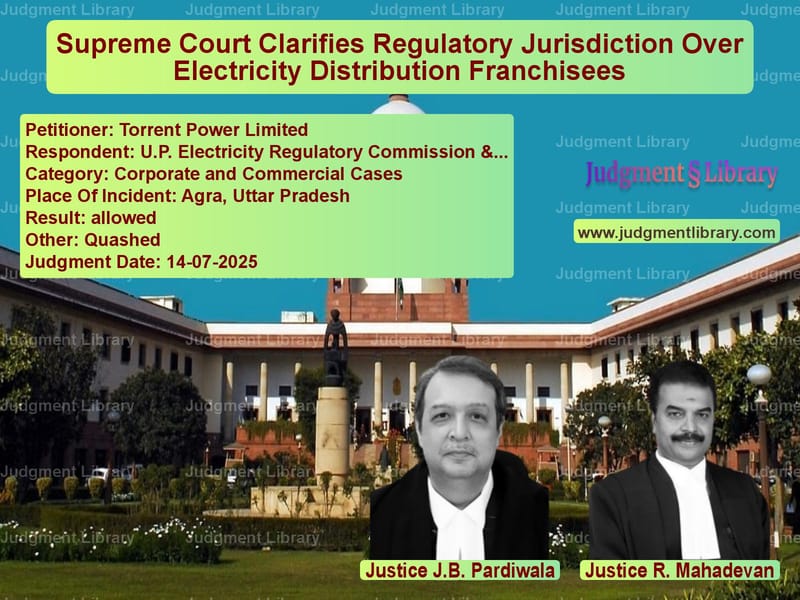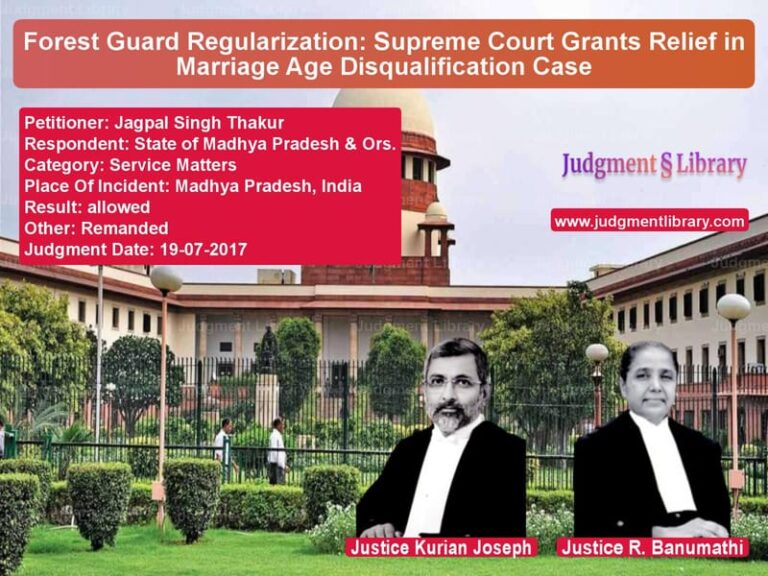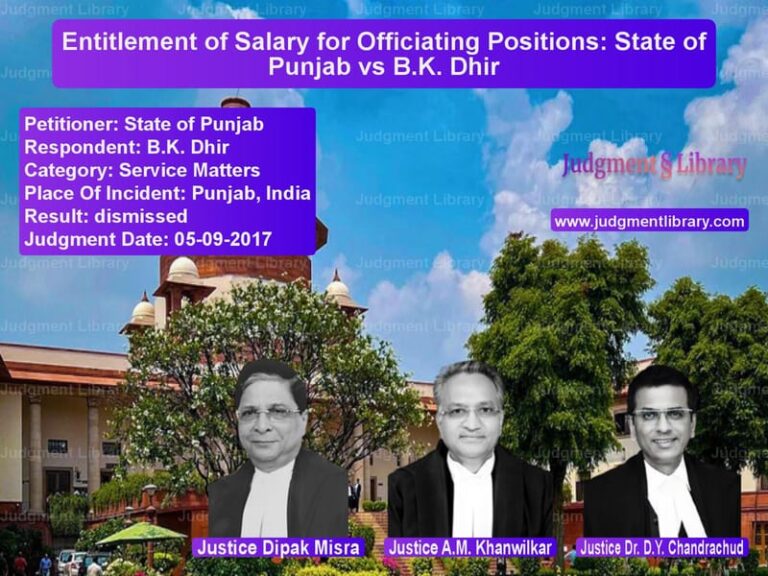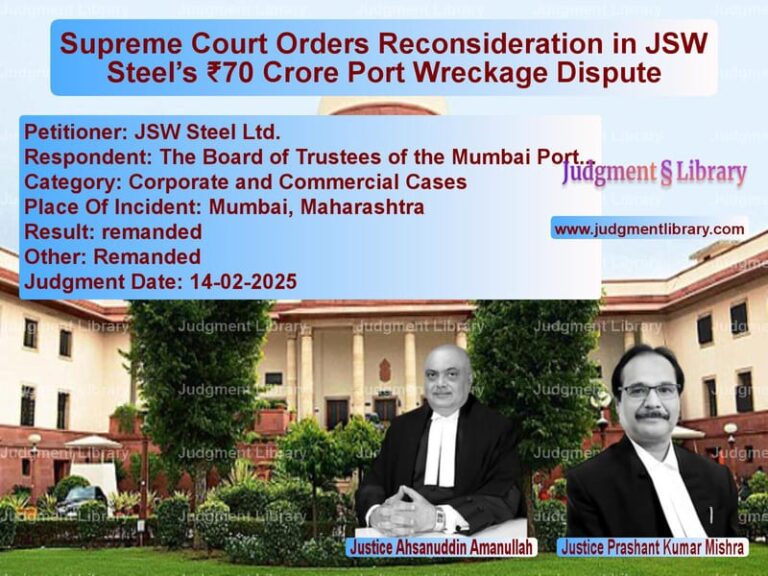Supreme Court Clarifies Regulatory Jurisdiction Over Electricity Distribution Franchisees
In a significant ruling that clarifies the boundaries of regulatory oversight in India’s power sector, the Supreme Court has delivered a judgment that addresses fundamental questions about who can regulate electricity distribution franchisees and under what circumstances. The case, which traveled through multiple layers of the judicial system, pitted Torrent Power Limited against the Uttar Pradesh Electricity Regulatory Commission and other respondents, ultimately reaching the nation’s highest court for final determination.
The dispute originated from a petition filed by Rama Shanker Awasthi before the Uttar Pradesh Electricity Regulatory Commission (UPERC) in 2012, challenging the Distribution Franchisee Agreement dated May 18, 2009, and Supplementary Agreement dated March 17, 2010, between Torrent Power Limited and Dakshinanchal Vidyut Vitran Nigam Ltd (DVVNL). The petitioner questioned the legality and propriety of these agreements, arguing that the appointment of Torrent Power as a distribution franchisee for the urban area of Agra violated Section 17 of the Electricity Act, 2003, as it allegedly constituted a transfer of utility without prior approval from the regulatory commission.
The UPERC, in its order dated July 16, 2015, held that the petition was maintainable on grounds of public interest and ordered the formation of an Expert Committee to examine the franchisee’s performance. This committee was tasked with investigating yearly reduction in loss levels, improvement in collection efficiency, recovery of arrears, and whether benefits of such improvements had been passed on to consumers.
Torrent Power appealed this decision before the Appellate Tribunal for Electricity (APTEL), which dismissed their appeal on July 28, 2016. The APTEL took the view that while Electricity Regulatory Commissions cannot entertain public interest litigations, the case at hand was not a PIL but rather a matter concerning the regulatory oversight of distribution licensees. Since franchisees undertake distribution on behalf of licensees, the impact of their activities could be considered by the UPERC.
The Supreme Court, in its judgment delivered by Justices J.B. Pardiwala and R. Mahadevan, identified two crucial questions for determination: whether any individual can invoke the jurisdiction of a State Electricity Regulatory Commission on the plea of public interest, and whether the Electricity Act, 2003 confers jurisdiction on State ERCs to consider and adjudicate the efficacy of a distribution franchisee agreement.
The appellant, Torrent Power, presented compelling arguments challenging the jurisdiction of the regulatory commissions. Their counsel vehemently submitted that “the APTEL failed to appreciate that the DFA entered into between the appellant and the respondent no. 3, was a contract under Section 2(27) of the Act, 2003 read with the seventh proviso to Section 14 and that the respondent no. 3 as the Distribution Licensee was the only regulated entity.” They further argued that “the agent, therefore, would not fall within the jurisdiction of the UPERC in its capacity as a regulatory authority.”
Torrent Power also relied on established legal precedent, particularly citing the case of Maharashtra State Electricity Distribution Co. Ltd. v. Reliance Energy Ltd., where the Supreme Court had categorically held that Section 86(1)(f) of the Electricity Act, 2003, which prescribes the adjudicatory functions of the State Commission, does not encompass within its domain complaints of individual consumers and that it only provides that the Commission can adjudicate upon disputes between licensees and generating companies.
The respondent, Rama Shanker Awasthi, defended the maintainability of the petition, arguing that the proceedings before the State Commission were under Sections 128 and 129 of the Electricity Act concerning violations of Sections 17, 43, 62 and the terms of the license issued to the distribution licensee. They emphasized that “one of the primary issues raised was the supply of power by the Respondent Nos.2 and 3 – distribution licensees to the Appellant at a tariff, not approved by the State Commission, and which was much lower than the cost of supply to the Respondent Nos.2 and 3.”
The respondent further contended that “the entire annual revenue requirements/total costs and expenses of the Respondent Nos.2 and 3 are recovered from the tariff of the consumers in Uttar Pradesh. Therefore, if there is a subsidized supply by the Respondent Nos.2 and 3 to the Appellant, it affects the tariff for the consumers of the licensee.” This argument highlighted the core concern about cross-subsidization and its impact on consumers across the state.
After extensive analysis of the relevant provisions of the Electricity Act, 2003, and previous judicial pronouncements, the Supreme Court delivered its decisive ruling. The Court made several crucial observations about the nature of the relationship between distribution licensees and franchisees, noting that “the Act, 2003 does not provide for a direct regulatory oversight by the ERCs in respect of the distribution franchisees.”
The Court elaborated on this principle, stating that “the relationship between the distribution licensee and franchisee is one of agency. As a natural corollary, the franchisee is accountable only to the distribution licensee, who in turn is accountable to the consumers.” This characterization of the relationship as one of principal and agent fundamentally shaped the Court’s analysis of the jurisdictional question.
In its reasoning, the Supreme Court referred to the APTEL’s decision in City Corporation Limited v. Maharashtra Electricity Regulatory Commission, which had observed that “a distribution licensee is the principal and the franchisee is its agent. While the franchisee is, no doubt, accountable to the distribution licensee in the discharge of its obligations under the distribution franchisee agreement, it is the distribution licensee which is accountable to its consumers including those consumers to whom electricity is supplied, on its behalf, by the franchisee.”
The Court also addressed the specific provision under which the respondent had approached the UPERC – Section 128 of the Electricity Act, which deals with investigation of certain matters. The Court noted that the language of Section 128 places the onus of initiating an investigation on the appropriate commission, and such investigation can only be directed against a licensee or generating company, not a franchisee.
Regarding the concept of cross-subsidization that formed a significant part of the respondent’s concerns, the Court observed that “the concept of cross subsidization is not alien to the electricity distribution sector. It aims to balance social objectives with the financial health of the electricity sector and is done on the basis of population mix of an area or in some circumstances even when there are high losses in an area.” The Court further noted that “cross subsidization as a standalone cause for challenging the fixation of an annualized input rate lower than the bulk supply rate of the distribution licensee, cannot be accepted.”
The Supreme Court expressed concern about the regulatory commissions overstepping their jurisdictional boundaries, stating that “the UPERC as well as the APTEL should have been mindful of the fact that it cannot micromanage a distribution franchisee transaction obliquely and question various aspects of the functioning of such franchisee including its collection, efficiency and the manner or quantum of reduction of distribution losses.”
In its concluding remarks, the Court emphasized that “the aforesaid exposition of law leaves no manner of doubt in our minds that the Act, 2003 does not envisage direct regulatory oversight as regards distribution franchisees and by virtue of their relationship of agency, such franchisees can only be indirectly regulated through the distribution licensee.”
The Supreme Court ultimately allowed Torrent Power’s appeal, setting aside the APTEL’s order and consequently rendering the Expert Committee Report insignificant. The Court found that the UPERC had committed a serious error in entertaining the petition filed by the respondent and that the APTEL had failed to correct this error. This judgment establishes important precedents regarding the regulatory jurisdiction over electricity distribution franchisees and clarifies the principal-agent relationship between licensees and franchisees under the Electricity Act, 2003.
The ruling provides much-needed clarity to India’s power sector, particularly for private players operating as distribution franchisees, by delineating the boundaries of regulatory oversight and reinforcing that franchisees, as agents of distribution licensees, fall under the regulatory purview only indirectly through the licensees they represent. This decision is likely to have far-reaching implications for future disputes involving distribution franchise agreements and the scope of regulatory commissions’ powers to investigate and oversee their operations.
Petitioner Name: Torrent Power Limited.Respondent Name: U.P. Electricity Regulatory Commission & Ors..Judgment By: Justice J.B. Pardiwala, Justice R. Mahadevan.Place Of Incident: Agra, Uttar Pradesh.Judgment Date: 14-07-2025.Result: allowed.
Don’t miss out on the full details! Download the complete judgment in PDF format below and gain valuable insights instantly!
Download Judgment: torrent-power-limite-vs-u.p.-electricity-reg-supreme-court-of-india-judgment-dated-14-07-2025.pdf
Directly Download Judgment: Directly download this Judgment
See all petitions in Company Law
See all petitions in Corporate Governance
See all petitions in Corporate Compliance
See all petitions in Contract Disputes
See all petitions in Consumer Rights
See all petitions in Judgment by J.B. Pardiwala
See all petitions in Judgment by R. Mahadevan
See all petitions in allowed
See all petitions in Quashed
See all petitions in supreme court of India judgments July 2025
See all petitions in 2025 judgments
See all posts in Corporate and Commercial Cases Category
See all allowed petitions in Corporate and Commercial Cases Category
See all Dismissed petitions in Corporate and Commercial Cases Category
See all partially allowed petitions in Corporate and Commercial Cases Category







